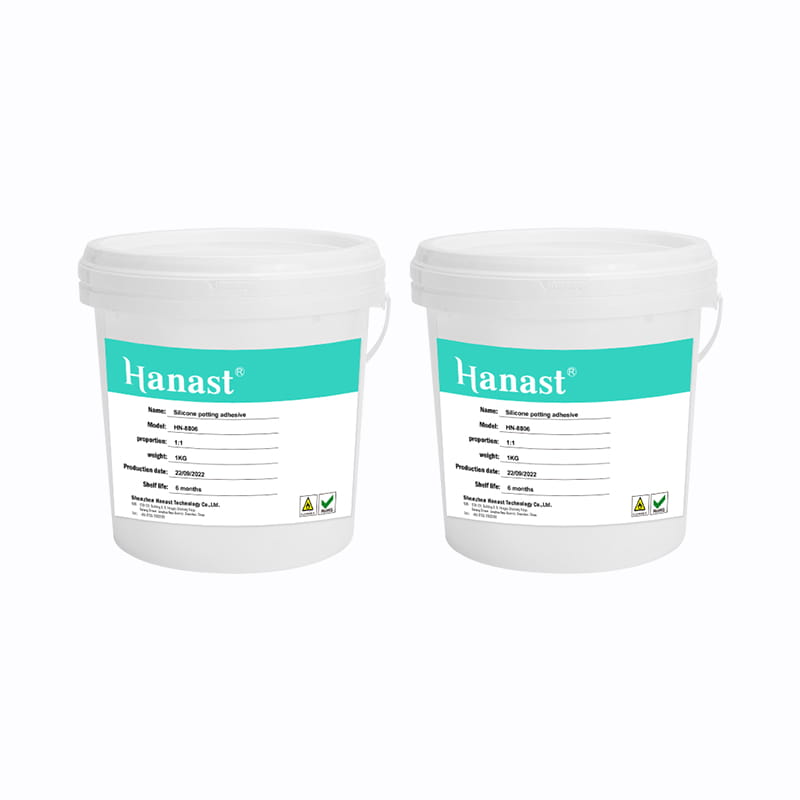Comparison of Application Performance between Epoxy potting glue and silicone potting glue
 Feb 23,2024
Feb 23,2024

 Hanast
Hanast
With the refinement of electronic components, the requirements for safety performance and usage stability are becoming more stringent. To meet these requirements, it is common to inject some potting glue into electrical components and circuit boards to achieve these performance requirements. So, is it better to choose a silicone potting compound or an epoxy potting compound? Now let me compare and explain the performance of potting glue products with everyone.
Potting glue is currently the main material for potting electronic components, as it can achieve good insulation and thermal conductivity after curing, protect electronic appliances, prevent burning, and thus improve the stability and service life of electronic appliances. Epoxy sealing adhesive and organosilicon sealing adhesive are both the main materials used in electrical sealing, but due to the different technical systems of the two materials, their application aspects are different.
Epoxy potting compounds are mostly hard, and there are also a few modified epoxy resins that are slightly soft. The major advantage of epoxy sealing adhesive is that it has good adhesion to a variety of metals and porous substrates. In addition, after curing, it has good waterproof, moisture-proof, anti-corrosion properties, and also excellent electrical performance. However, general epoxy sealing adhesives have poor resistance to cold and hot changes and are prone to cracking, delamination, and other phenomena after encountering cold and hot impacts. Of course, not all epoxy sealing adhesives have poor resistance to high and low temperatures. Some brand products have greatly improved their resistance to cold and hot impacts through technological optimization. The most important thing is to choose the right brand of adhesive.
Silicone potting glue has a low curing shrinkage rate and superior temperature resistance when used in environments ranging from -60 ℃ to 200 ℃, with almost no major problems. Therefore, organic silicon sealant has good resistance to cold and hot impacts and is also good in other aspects such as protection and electrical insulation. However, the adhesion of general organic silicon sealant after sealing is weaker than that of epoxy sealant, This is also the biggest drawback of most silicone sealants.
So, the editor believes that epoxy potting glue and silicone potting glue have their advantages in application. For example, when using sealing adhesive in products, good adhesion is required. Firstly, epoxy potting glue can be considered, and products with high-temperature resistance requirements, such as requiring a low temperature of -55 ℃ or above, and a high temperature above 200 ℃, should be selected. If you are considering more than these application properties, consider silicone potting glue, Suggest consulting a professional manufacturer.




 Home
Home


 Application Cases of Silicone Adhesive for Aluminum Material and Silicone Adhesive for Metal
Application Cases of Silicone Adhesive for Aluminum Material and Silicone Adhesive for Metal  You May Also Like
You May Also Like






 Tel
Tel
 Email
Email
 Address
Address












